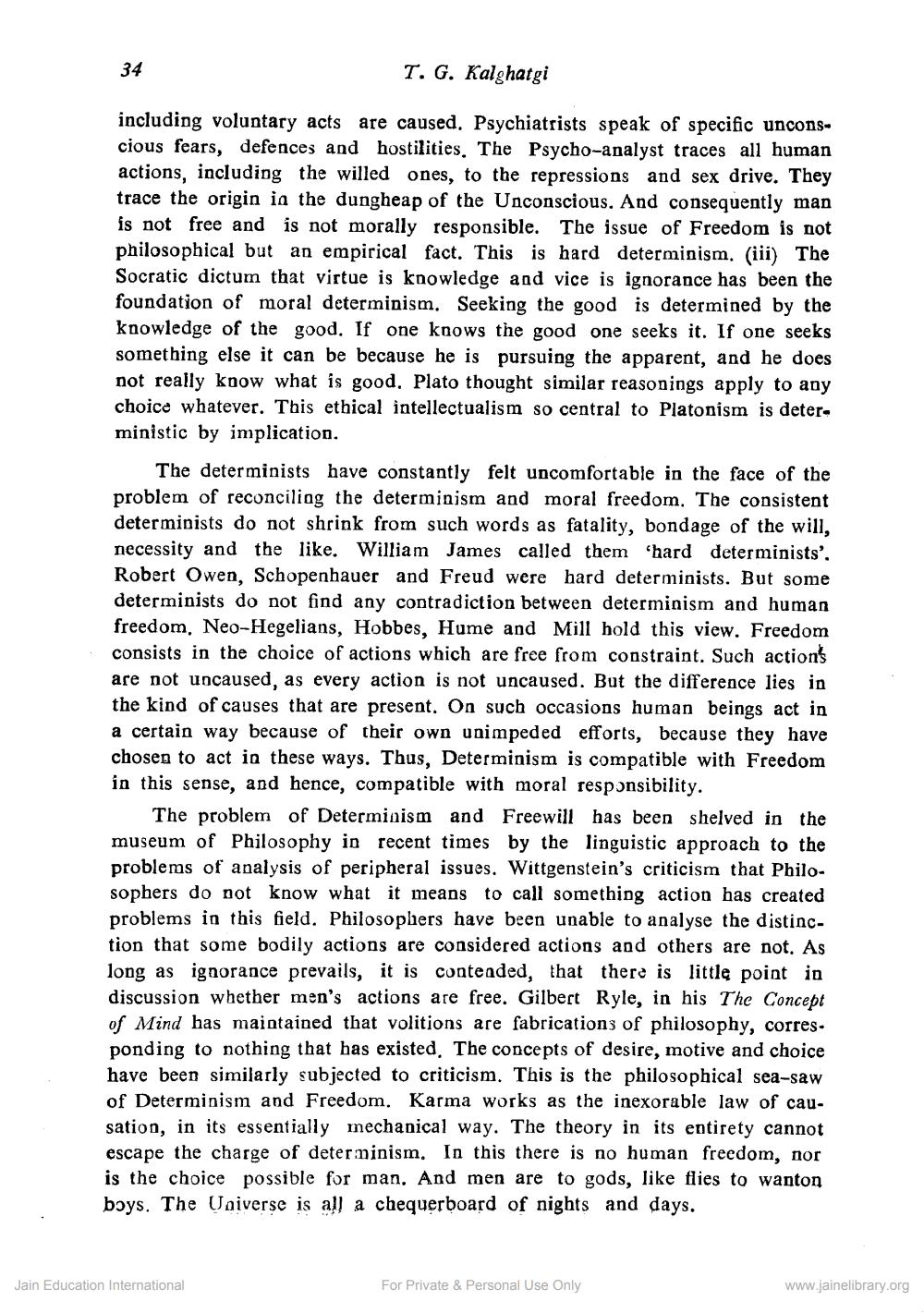________________
T. G. Kalghatgi
including voluntary acts are caused. Psychiatrists speak of specific unconscious fears, defences and hostilities. The Psycho-analyst traces all human actions, including the willed ones, to the repressions and sex drive. They trace the origin in the dungheap of the Unconscious. And consequently man is not free and is not morally responsible. The issue of Freedom is not philosophical but an empirical fact. This is hard determinism. (iii) The Socratic dictum that virtue is knowledge and vice is ignorance has been the foundation of moral determinism. Seeking the good is determined by the knowledge of the good. If one knows the good one seeks it. If one seeks something else it can be because he is pursuing the apparent, and he does not really know what is good. Plato thought similar reasonings apply to any choice whatever. This ethical intellectualism so central to Platonism is deter ministic by implication.
34
The determinists have constantly felt uncomfortable in the face of the problem of reconciling the determinism and moral freedom. The consistent determinists do not shrink from such words as fatality, bondage of the will, necessity and the like. William James called them 'hard determinists". Robert Owen, Schopenhauer and Freud were hard determinists. But some. determinists do not find any contradiction between determinism and human freedom, Neo-Hegelians, Hobbes, Hume and Mill hold this view. Freedom consists in the choice of actions which are free from constraint. Such actions are not uncaused, as every action is not uncaused. But the difference lies in the kind of causes that are present. On such occasions human beings act in a certain way because of their own unimpeded efforts, because they have chosen to act in these ways. Thus, Determinism is compatible with Freedom in this sense, and hence, compatible with moral responsibility.
The problem of Determinism and Freewill has been shelved in the museum of Philosophy in recent times by the linguistic approach to the problems of analysis of peripheral issues. Wittgenstein's criticism that Philosophers do not know what it means to call something action has created problems in this field. Philosophers have been unable to analyse the distinction that some bodily actions are considered actions and others are not. As long as ignorance prevails, it is contended, that there is little point in discussion whether men's actions are free. Gilbert Ryle, in his The Concept of Mind has maintained that volitions are fabrications of philosophy, corresponding to nothing that has existed. The concepts of desire, motive and choice have been similarly subjected to criticism. This is the philosophical sea-saw of Determinism and Freedom. Karma works as the inexorable law of causation, in its essentially mechanical way. The theory in its entirety cannot escape the charge of determinism. In this there is no human freedom, nor is the choice possible for man. And men are to gods, like flies to wanton boys. The Universe is all a chequerboard of nights and days.
Jain Education International
For Private & Personal Use Only
www.jainelibrary.org




